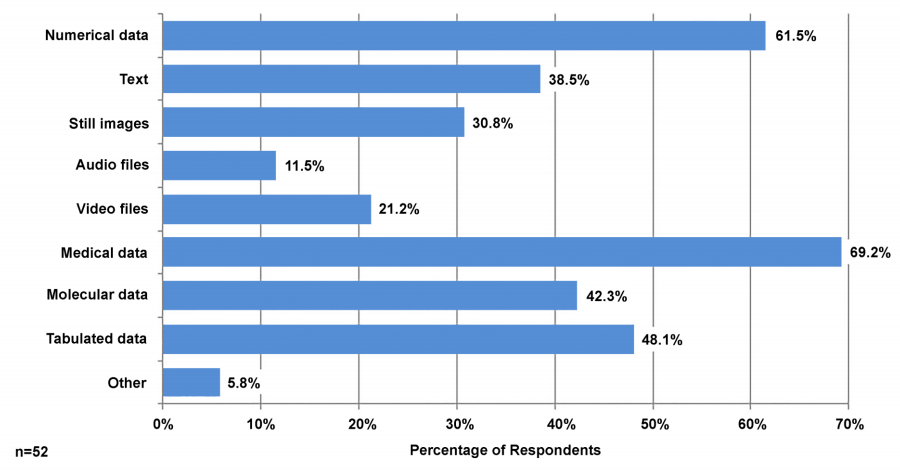Difference between revisions of "Template:Article of the week"
Shawndouglas (talk | contribs) (Updated article of the week text.) |
Shawndouglas (talk | contribs) (Updated article of the week text.) |
||
| Line 1: | Line 1: | ||
<div style="float: left; margin: 0.5em 0.9em 0.4em 0em;">[[File:Fig1 | <div style="float: left; margin: 0.5em 0.9em 0.4em 0em;">[[File:Fig1 Norton JofeScienceLibrarianship2016 5 1.png|240px]]</div> | ||
'''"[[Journal: | '''"[[Journal:Assessment of and response to data needs of clinical and translational science researchers and beyond|Assessment of and response to data needs of clinical and translational science researchers and beyond]]"''' | ||
As universities and libraries grapple with data management and “big data,” the need for data management solutions across disciplines is particularly relevant in clinical and [[Translational research|translational science research]], which is designed to traverse disciplinary and institutional boundaries. At the University of Florida Health Science Center Library, a team of librarians undertook an assessment of the research data management needs of clinical and translation science (CTS) researchers, including an online assessment and follow-up one-on-one interviews. | |||
The 20-question online assessment was distributed to all investigators affiliated with UF’s Clinical and Translational Science Institute (CTSI) and 59 investigators responded. Follow-up in-depth interviews were conducted with nine faculty and staff members. | |||
Results indicate that UF’s CTS researchers have diverse data management needs that are often specific to their discipline or current research project and span the data lifecycle. A common theme in responses was the need for consistent data management training, particularly for graduate students; this led to localized training within the Health Science Center and CTSI, as well as campus-wide training. ('''[[Journal:Assessment of and response to data needs of clinical and translational science researchers and beyond|Full article...]]''')<br /> | |||
<br /> | <br /> | ||
''Recently featured'': | ''Recently featured'': | ||
: ▪ [[Journal:SUSHI: An exquisite recipe for fully documented, reproducible and reusable NGS data analysis|SUSHI: An exquisite recipe for fully documented, reproducible and reusable NGS data analysis]] | |||
: ▪ [[Journal:Open source data logger for low-cost environmental monitoring|Open source data logger for low-cost environmental monitoring]] | : ▪ [[Journal:Open source data logger for low-cost environmental monitoring|Open source data logger for low-cost environmental monitoring]] | ||
: ▪ [[Journal:Evaluating health information systems using ontologies|Evaluating health information systems using ontologies]] | : ▪ [[Journal:Evaluating health information systems using ontologies|Evaluating health information systems using ontologies]] | ||
Revision as of 16:47, 12 September 2016
As universities and libraries grapple with data management and “big data,” the need for data management solutions across disciplines is particularly relevant in clinical and translational science research, which is designed to traverse disciplinary and institutional boundaries. At the University of Florida Health Science Center Library, a team of librarians undertook an assessment of the research data management needs of clinical and translation science (CTS) researchers, including an online assessment and follow-up one-on-one interviews.
The 20-question online assessment was distributed to all investigators affiliated with UF’s Clinical and Translational Science Institute (CTSI) and 59 investigators responded. Follow-up in-depth interviews were conducted with nine faculty and staff members.
Results indicate that UF’s CTS researchers have diverse data management needs that are often specific to their discipline or current research project and span the data lifecycle. A common theme in responses was the need for consistent data management training, particularly for graduate students; this led to localized training within the Health Science Center and CTSI, as well as campus-wide training. (Full article...)
Recently featured:










